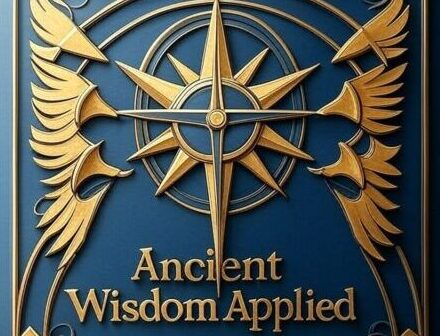Plato’s Allegory of the Cave: Slashing Through 2025’s “My Truth” Noise
Why Plato’s Cave Ignited My Quest for Truth
The Allegory of the Cave was my first dance with philosophy, a spark that lit a lifelong fire. I don’t recall the exact moment—maybe a high school literature class, maybe a dog-eared book from a reading list. This was pre-internet, before cable TV’s noise, when life was simple: three TV channels, radio headlines, and newspapers distilled the world. No endless information barrage, just an hour’s news or a five-minute radio blip. In that quiet, Plato’s tale of prisoners mistaking shadows for reality hit like a thunderbolt, daring me to question everything and chase absolute truth. It sent me diving into Socrates, whose “Know thyself” mantra demanded brutal self-examination, and Aristotle and the Stoics, fueling my obsession with ancient scholars who valued clarity over comfort.
As I grew older and society shifted, the allegory’s relevance grew sharper. The internet and 24-hour news cycles replaced that quiet simplicity with a flood of noise—newsrooms scrambling to fill airtime, radio talk shows pushing agendas, all chasing scoops over substance. I saw Plato’s cave in this chaos: truth sacrificed for headlines, “my truth” narratives dodging Socrates’ call to self-scrutiny. Today, it’s X posts or algorithm-driven feeds chasing clicks, burying the sun of absolute truth. Yet ancient wisdom holds stronger now than in Plato’s Greece, cutting through our modern fog with a call to seek truth, not shadows. This spark drives why the allegory matters in 2025’s chaos.
The Allegory in Brief
In Book VII of The Republic, Plato’s prisoners are chained in a dark cave, seeing only shadows cast by a fire—their reality. One escapes, discovers the real world, and learns the shadows are illusions. The sun is absolute truth, but the climb is brutal, and others resist liberation. Plato shows our struggle to break free from illusions.
Fighting Through the Noise for Truth
The prisoner’s struggle—breaking chains, unlearning lies, enduring the sun’s glare—mirrors our battle in 2025:
- Algorithmic Fog: X and TikTok trap us in echo chambers. A 2024 Pew Research study found 64% of Americans rely on social media for news, but algorithms favor clicks over facts. The 2025 #ClimateHoax X trend spread dubious claims, drowning out data. Digging for truth means scouring primary sources.
- Narrative Overload: Deepfakes, clickbait, and “my truth” mantras on X obscure reality. A 2025 World Association of News Publishers report says 59% can’t spot trustworthy sources. The “my truth” cop-out lets users dodge evidence for comfort, chaining them to shadows. Education, like Plato’s philosopher training, cuts through.
- Social Pushback: Questioning narratives invites backlash. Challenging a viral X post or “my truth” claim risks being labeled a contrarian, reflecting the prisoners’ hostility.
Why It Matters
The allegory speaks to 2025’s chaos. Algorithms feed us shadows we mistake for truth, putting us into digital caves. People cling to narratives, fearing truth’s discomfort, ever resistant to clarity and truth. Like the prisoner, we must share truth, guided by Beauty (clear reasoning) and Goodness (ethical responsibility). As prisoners who have broken the bonds of the cave, we have a duty to enlighten.
Nuances
- Gradual Learning: Enlightenment is slow, like mastering media literacy.
- Illusion of Escape: Swapping mainstream for fringe X posts isn’t freedom.
- “My Truth” Cop-Out: The “my truth” trend—think X users or influencers dodging evidence with personal narratives—is a lazy excuse to avoid self-critique. It’s the prisoners clinging to shadows, rejecting the sun’s absolute truth for comfort.
Break Free: Your Call to Action
Truth isn’t “yours”—it’s the sun, absolute and blazing. Ditch the “my truth” cop-out, face the mirror, and question your assumptions like Socrates did. Reject X’s viral cons and cross-check sources. Visualize this: a cave with screens flashing “My Truth,” dwarfed by a dog-eared book glowing with Plato’s wisdom. What spark lit your quest for truth? Share below, use #RejectMyTruth, and fight for the light! [Explore *The Republic* to ignite your own quest]The Republic..
Reference List
- Plato. (2008). The Republic (B. Jowett, Trans.). Oxford University Press. (Original work published ca. 380 BCE)
- Pew Research Center. (2024). Social Media and News Consumption in the U.S. Retrieved from [Pew Research Center website].
- World Association of News Publishers. (2025). Global Media Trust Report. Retrieved from [WAN-IFRA website].

